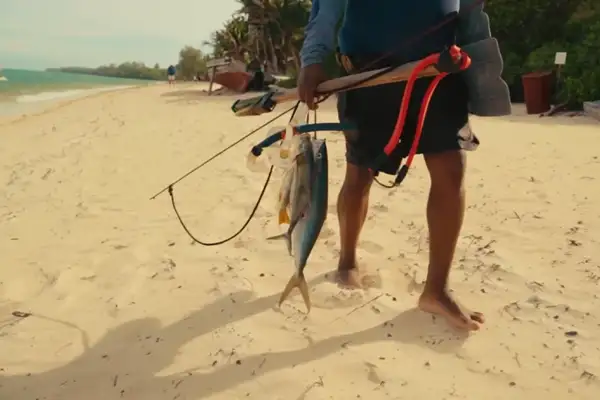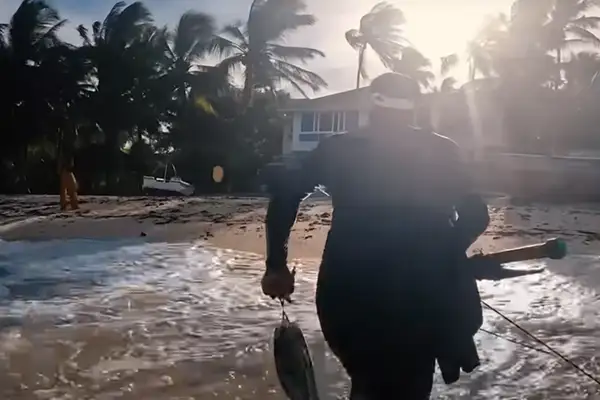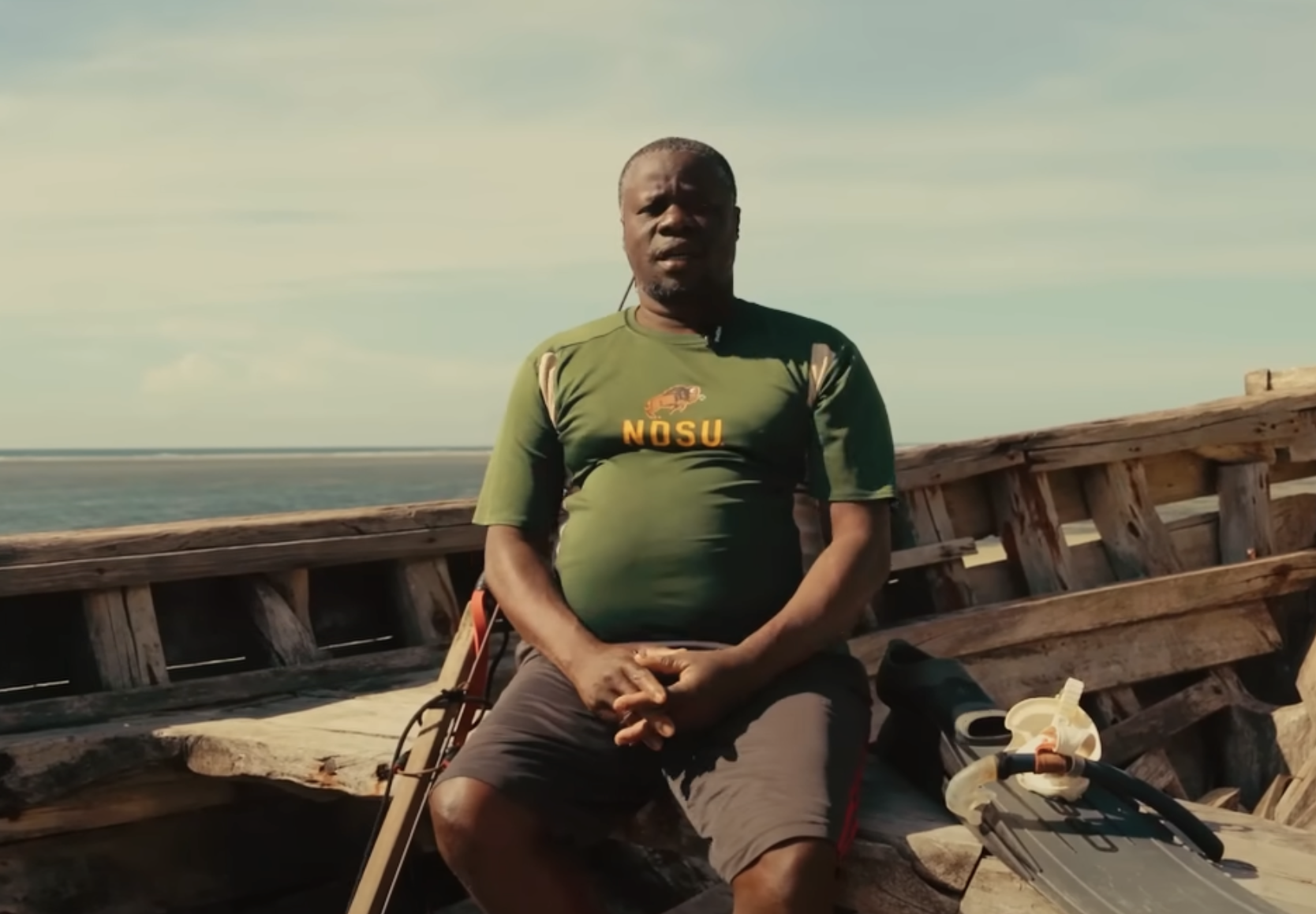Hamisi is a fisherman from East Africa whose family has fished these waters for generations, embodying tradition and resilience in the face of illegal fishing. As coastal villages confront this silent battle for survival and community identity, Hamisi’s story highlights the struggle to preserve ancestral ways against the encroachment of unlawful practices that threaten their livelihoods.
A Fragile Harmony: East African Fishing Under Threat
For centuries, fishing along the East African coast has been more than just a profession; it has been a way of life, a cultural cornerstone passed down from father to son. Hamisi learned the art of fishing from his elders, mastering the ancient techniques, understanding the currents, and respecting the delicate balance of the marine ecosystem. His dhow, a traditional sailing vessel, glides through the turquoise waters, a symbol of a sustainable harmony between man and nature. But this harmony is now under severe duress, fractured by the insidious practices of illegal, unreported, and unregulated (IUU) fishing.
Illegal fishing is causing catastrophic environmental damage, as unscrupulous operators use destructive methods like fine-mesh nets and dynamite fishing, which decimate marine life and destroy essential habitats. These practices rapidly deplete fish stocks and ruin coral reefs, leading to a significant decline in fish populations and biodiversity. Hamisi’s experiences illustrate this decline, as his once fruitful fishing grounds are now barren, reflecting the brutal impact of illegal fishing on East Africa’s natural heritage and ecosystems.
Illegal fishing not only harms the environment but also devastates local economies reliant on the sea, severely impacting traditional fishermen like Hamisi. Dwindling fish stocks have led to a significant drop in income, making it difficult to afford basic necessities. Once lively fish markets are now quiet, with stalls often empty or offering low-quality catches, which negatively affects the entire coastal economy. Fish processors, boat builders, net makers, and others linked to the fishing industry are facing extreme hardship, with many forced to leave their trades.
Struggling Seas: The Plight of Traditional Fishermen in the Face of Depleted Stocks and Illegal Operations
Families like Hamisi’s are directly affected by this economic squeeze. Children, once able to attend school, are pulled out to help supplement the family income, often engaging in arduous and poorly paid labor. Healthcare becomes a luxury, and food security, once a given, becomes a daily struggle. The traditional social fabric of these communities, woven over centuries of shared enterprise and mutual support, begins to fray under the relentless pressure of poverty. The sense of dignity and purpose that comes from a productive livelihood is eroded, replaced by anxiety and despair.

The challenges Hamisi faces are multifaceted. He contends not only with the depleted fish stocks but also with the unfair competition from illegal operators. These vessels, often larger and more technologically advanced, operate without licenses, avoid taxes, and disregard regulations. They flood the market with cheap, untaxed fish, undercutting the prices of Hamisi’s legitimate catch. This creates an uneven playing field, making it nearly impossible for traditional fishermen to compete. The irony is bitter: Hamisi, who respects the sea and adheres to sustainable practices, finds himself penalized for his ethical approach, while those who plunder the ocean reap illicit profits.
The lack of effective enforcement mechanisms further exacerbates the problem. While laws against illegal fishing exist, the vastness of the East African coastline, coupled with limited resources for surveillance and prosecution, makes it difficult to apprehend and deter offenders. Corruption within some layers of governance can also complicate efforts to combat this illicit trade, allowing some illegal operations to continue unchecked.
Fighting for the Future: A Community’s Stand Against Illegal Fishing
Yet, despite the formidable odds, Hamisi and others like him refuse to surrender. Their resilience is born from a deep connection to their heritage and a profound understanding of their role as stewards of the ocean. They are advocating for stronger governance, increased patrols, and community-based monitoring programs. They are educating their children about sustainable fishing practices, hoping to instill in them the same respect for the sea that has guided generations. Their fight is not just for their own livelihoods; it is a fight for the future of their communities, for the preservation of a precious ecosystem, and for the right to maintain their traditional way of life.

The story of Hamisi is a microcosm of a much larger global crisis. Illegal fishing is a global scourge, threatening marine ecosystems and undermining the livelihoods of countless coastal communities worldwide. It is a complex issue intertwined with poverty, food security, and governance challenges. But it is also a fight that can be won, with concerted effort and international cooperation.
Hamisi’s fight is a powerful reminder that the choices we make, as consumers and as global citizens, have a direct impact on distant shores. Supporting sustainable seafood, advocating for stronger international agreements, and demanding greater accountability from fishing industries are all crucial steps in combating illegal fishing.
To truly understand the depth of Hamisi’s struggle, to witness the beauty of his traditional way of life, and to appreciate the urgency of this battle, we urge you to delve deeper into his story.
Watch the video to learn more about Hamisi’s fight against illegal fishing and the powerful story of tradition versus the threats to East Africa’s oceans. His voice is a powerful call to action, urging us all to become champions for the preservation of our marine environment and the protection of vulnerable communities.

